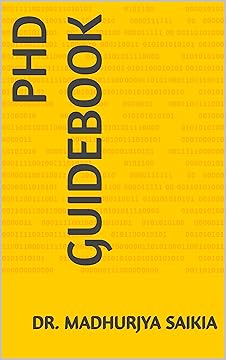(Photo courtesy: pexels.com)
I was too a student. I spent years writing answers in the exams. Throughout our life, we have never been told how to write the answer in a manner that fetches good marks. I learned how to go about it in bits and pieces by the hit and trial method.
As a student, I thought that whatever I
wrote was superclass or epic. But, marks told the opposite. Later, I learned a
few things, which helped me get good marks to some extent. Recently, I did some
study regarding this and watched some Dristi IAS videos where they explained
how to write in IAS exams. But, technical writing is slightly different because
we do derivation and problem-solving apart from general answering. However, I
picked up some general tips regarding writing an answer from the videos. So,
these are the tips that may be beneficial to you.
(1) Handwriting
Handwriting is very important. In exams, one is communicating through his or her handwriting only. Many people have illegible handwriting. That is a big problem. If the examiner cannot understand the text, he cannot award a mark. Often, the examiner tends to give an average mark or sometimes less. Even if you are writing a perfect answer, this is of no use unless your handwriting is good. You will end up getting marks below your expectation. That isn't good. One can improve handwriting by practice. It takes one or two months at best. While writing, the words should be appropriately spaced and written in a straight direction. The text size should be medium. Besides, one should avoid flowery style. Sometimes, it clutters the whole reading experience.Above all, it should be neat and clean to look at. People in IAS coaching institutes are always taught how to write their papers.
(2) Statement
In engineering exams, many a time, students are asked to write statements about a scientific law such as Newton's laws, Hooke's, etc. Generally, the statements should be written as they have been stated. After that, one might be asked to derive it also. So, derivations should be clean without any missing steps. This leaves no scope for the examiner to deduct marks.
(3) Scoring points
When we do not know something, we try to beat around the bush. It may help in day-to-day conversation, but it is useless in the exam. The examiners are dealing with the subject matter for a long time. They know the nook and corner of the subject very well after long years of experience. So, one cannot win them over by some lame points. They feel excited by the facts or an excellent explanation of the topic. So, while writing a descriptive answer dealing with a concept, one should try to touch on the relevant points of the topic. Writing unnecessary & meaningless matter raise the integrity issue regarding the writer. It gives an impression of ignorance about the topic. Additionally, one should include examples as much as possible.
(4) Diagrams
Flow diagrams and schematic diagrams are integral parts of engineering life. Let us consider you are writing an answer. In that answer, you are describing a concept in a paragraph. In that case, one can draw a flow diagram or schematic diagram to explain a paragraph in a better manner. This helps the examiner to understand the topic in the shortest possible time. Moreover, it helps to set up an image in his head that you know whatever you are writing. However, one should remember that the schematic diagrams should be drawn by pencil & adequately labelled. A diagram without a label screams a lot about your hold on the topic. It also indicates that the person may be trying to copy and cannot do so due to some problem. Hence, it is half done. Many a time, people try to mislead the examiner with flowery language. That is pretty much useless now a day.
(5) Derivation & problem solving
In engineering exams, students are told
to derive expressions. Derivations are very important. One should try to show
every step clearly to avoid ambiguity. Otherwise, the examiners might think
that the student is just bluffing by jumping the steps. Generally, steps marks
are provided in engineering for such steps. Even if you cannot complete the
whole derivation, you may get a few marks for the steps. Besides, one should
mention the sign convention for ease of understanding. At last, one should not shy away from explanation if it is required in any stage.
The problem-solving is another important aspect while writing a paper in the exam. The problems are more or less like derivations. You have to give diagrams if required and show the steps clearly. Many a time, we develop the unhealthy habit of jumping the steps. We need to keep in mind that the marks are for the clear elaboration of the steps. On the sides of the answer, one can show the calculation with a pencil. It further strengthens the student's credibility . Those who are not transparent try to avoid such transparency. Additionally, one should double-check the units in the problems. Units are very important. Generally, examiners deduct marks for missing units in the problem. Without the units, the figures do not mean anything. Those are just numbers.
If you like the post, you can read or gift the author's books “B.Tech Guidebook", "Campus Placement Guidebook" and "PhD guidebook "available worldwide in Amazon in Kindle format. These books will help you strategize your life. You will find many important things which are not discussed anywhere. Click in the link below.
Campus Placement Guidebook (Click)




